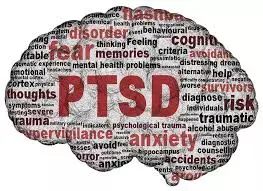- Home
- Medical news & Guidelines
- Anesthesiology
- Cardiology and CTVS
- Critical Care
- Dentistry
- Dermatology
- Diabetes and Endocrinology
- ENT
- Gastroenterology
- Medicine
- Nephrology
- Neurology
- Obstretics-Gynaecology
- Oncology
- Ophthalmology
- Orthopaedics
- Pediatrics-Neonatology
- Psychiatry
- Pulmonology
- Radiology
- Surgery
- Urology
- Laboratory Medicine
- Diet
- Nursing
- Paramedical
- Physiotherapy
- Health news
- Fact Check
- Bone Health Fact Check
- Brain Health Fact Check
- Cancer Related Fact Check
- Child Care Fact Check
- Dental and oral health fact check
- Diabetes and metabolic health fact check
- Diet and Nutrition Fact Check
- Eye and ENT Care Fact Check
- Fitness fact check
- Gut health fact check
- Heart health fact check
- Kidney health fact check
- Medical education fact check
- Men's health fact check
- Respiratory fact check
- Skin and hair care fact check
- Vaccine and Immunization fact check
- Women's health fact check
- AYUSH
- State News
- Andaman and Nicobar Islands
- Andhra Pradesh
- Arunachal Pradesh
- Assam
- Bihar
- Chandigarh
- Chattisgarh
- Dadra and Nagar Haveli
- Daman and Diu
- Delhi
- Goa
- Gujarat
- Haryana
- Himachal Pradesh
- Jammu & Kashmir
- Jharkhand
- Karnataka
- Kerala
- Ladakh
- Lakshadweep
- Madhya Pradesh
- Maharashtra
- Manipur
- Meghalaya
- Mizoram
- Nagaland
- Odisha
- Puducherry
- Punjab
- Rajasthan
- Sikkim
- Tamil Nadu
- Telangana
- Tripura
- Uttar Pradesh
- Uttrakhand
- West Bengal
- Medical Education
- Industry
Modified Mandibular Splint may reduce nocturnal symptoms in PTSD patients

Recent research reveals that a thicker-than-conventional removable soft mandibular splint is effective in attenuating the nocturnal symptomatology of PTSD: sleep disruptions, nocturnal headaches, and nightmares.
The study is published in the International Dental Journal.
Based on a series of clinical observations that a thicker mandibular splint than that commonly used to treat bruxism and related craniomandibular myofascial pain reduced post-traumatic stress disorder (PTSD) nocturnal symptomatology (sleep disruptions, headaches, and nightmares), this study of 100 PTSD participants was undertaken by Donald B.Giddon and colleagues from the Developmental Biology, Harvard School of Dental Medicine, Harvard University, Boston, MA, USA to systematically establish 'proof of concept' of the therapeutic effectiveness of this modified splinting procedure.
Following the fabrication of splints thicker than those conventionally used, the effectiveness of this new procedure used by dentists was determined by comparing the self-reported frequency and intensity/severity of PTSD symptomatology during a seven-night pretreatment baseline period without the splint with a second seven-night period in which the modified splint was inserted.
The scoring for the three dependent measures (sleep disruptions, headaches, and nightmares) was based on the frequencies on a scale from 0–7 multiplied by the intensity/severity on a scale of 1–10.
The interesting results demonstrated that –
- Compared with the pre-splint baseline period, the insertion of the thickened splint resulted in a highly significant reduction of sleep disruption, nocturnal headaches, and nightmares.
- A second seven-night control period without the splint was followed by a second seven-night period with the splint, reproducing the effectiveness of the first splinting period.
Hence, this led the authors to conclude that "the modified splinting procedure is quite effective in reducing key nocturnal symptoms in PTSD patients."
Given the limited efficacy of pharmacologic interventions for PTSD, use of the procedure described here should be considered as an adjunctive or alternative option for treating PTSD, they further inferred.
Dr. Nandita Mohan is a practicing pediatric dentist with more than 5 years of clinical work experience. Along with this, she is equally interested in keeping herself up to date about the latest developments in the field of medicine and dentistry which is the driving force for her to be in association with Medical Dialogues. She also has her name attached with many publications; both national and international. She has pursued her BDS from Rajiv Gandhi University of Health Sciences, Bangalore and later went to enter her dream specialty (MDS) in the Department of Pedodontics and Preventive Dentistry from Pt. B.D. Sharma University of Health Sciences. Through all the years of experience, her core interest in learning something new has never stopped. She can be contacted at editorial@medicaldialogues.in. Contact no. 011-43720751
Dr Kamal Kant Kohli-MBBS, DTCD- a chest specialist with more than 30 years of practice and a flair for writing clinical articles, Dr Kamal Kant Kohli joined Medical Dialogues as a Chief Editor of Medical News. Besides writing articles, as an editor, he proofreads and verifies all the medical content published on Medical Dialogues including those coming from journals, studies,medical conferences,guidelines etc. Email: drkohli@medicaldialogues.in. Contact no. 011-43720751


